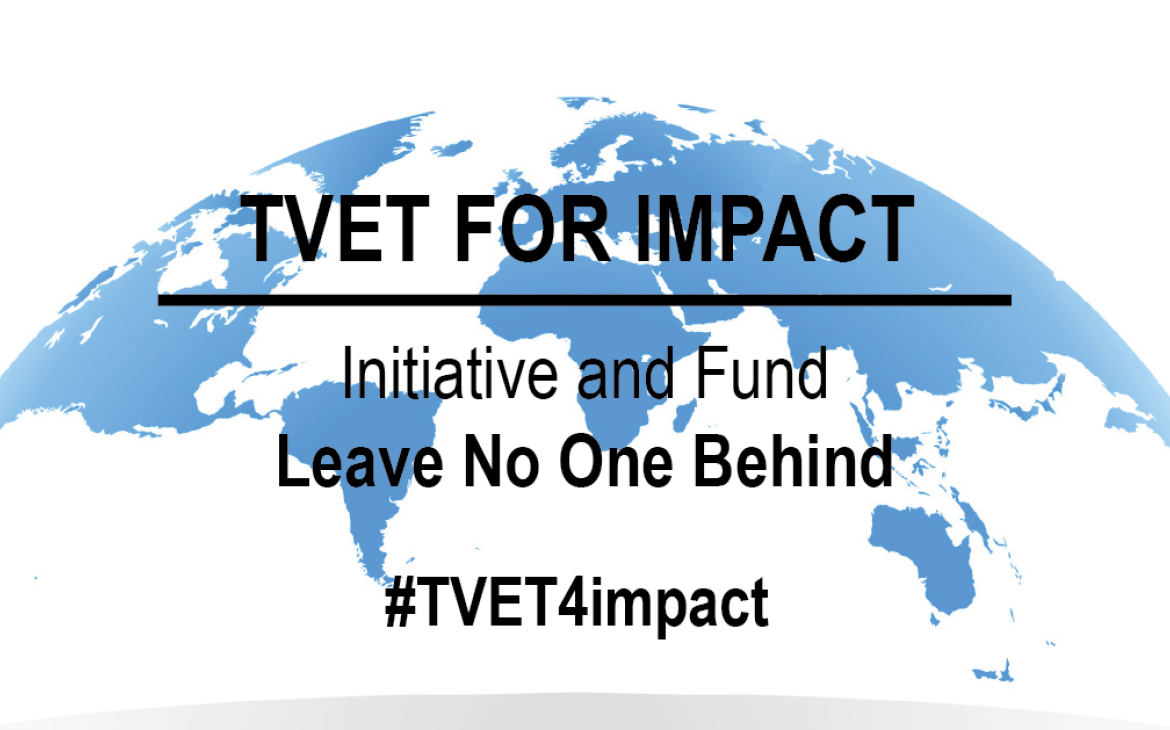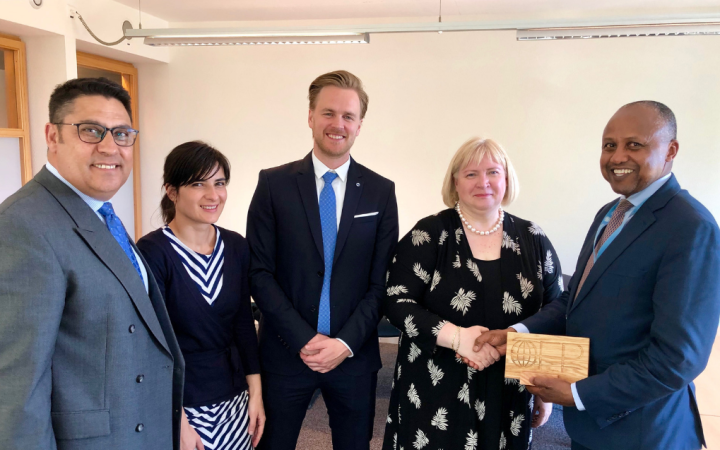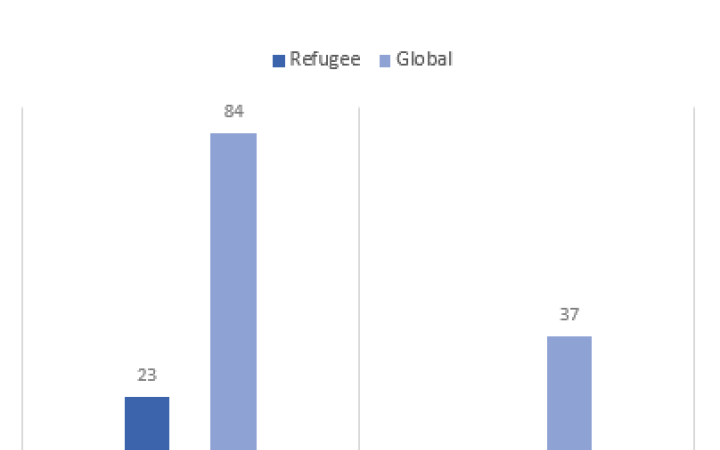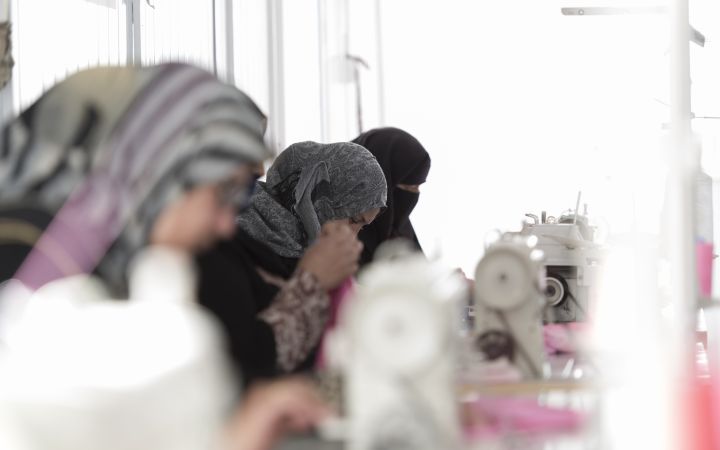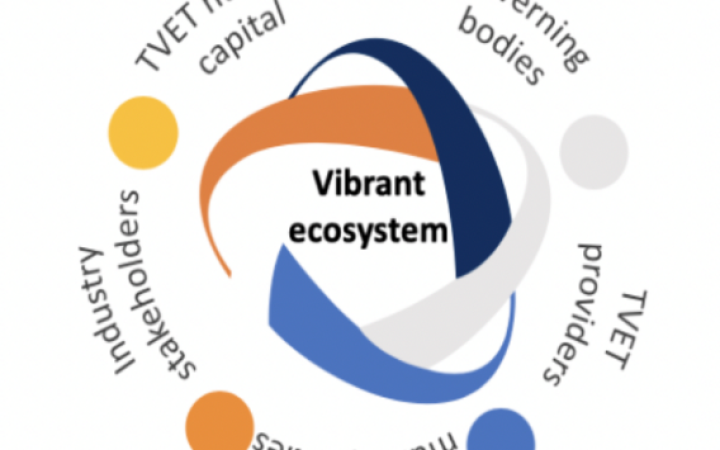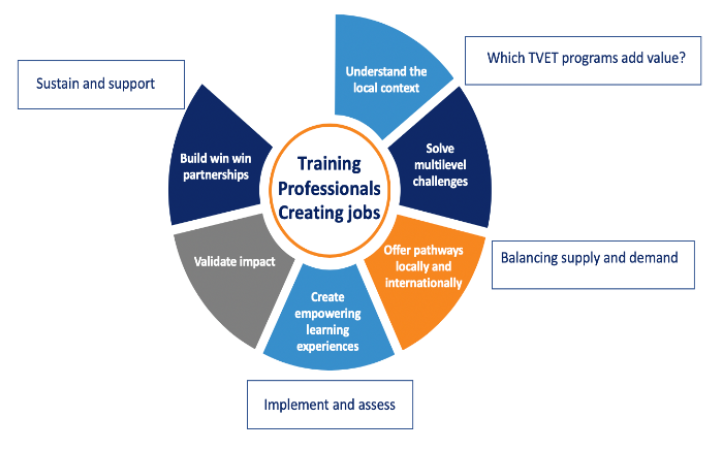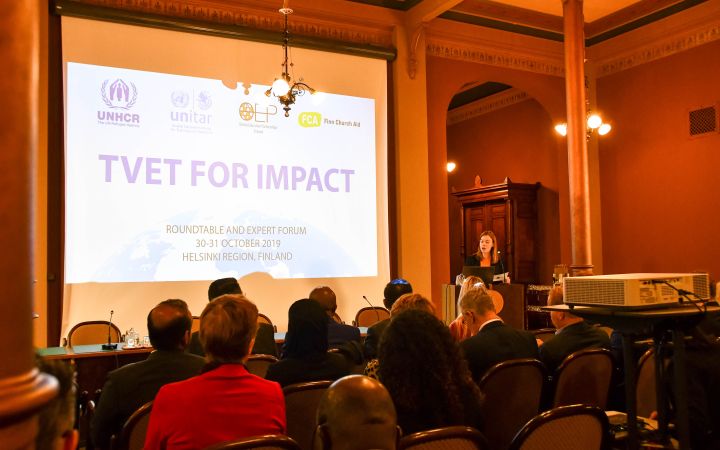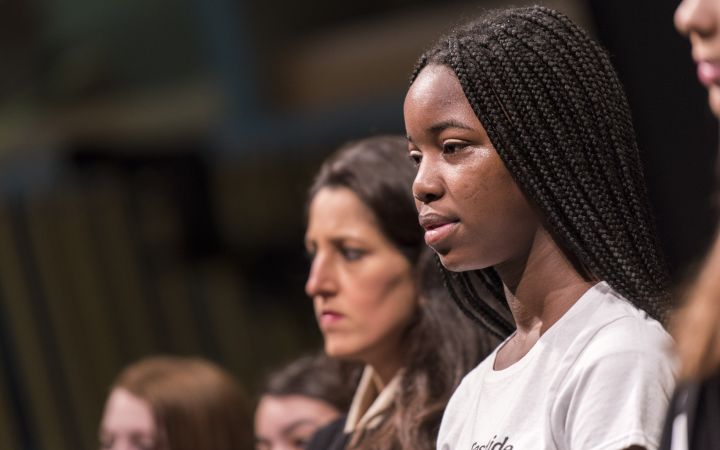UNITAR’s Division for Peace is pleased to announce the launch of Technical and Vocational Education and Training (TVET) focused project fund ‘TVET for Impact’. The fund is an outcome of the dire need to take action to offer quality TVET for vulnerable populations and will contribute to building an ecosystem of partnerships, bridging gaps between the public and private sector, for the benefit of the local economies and individuals involved in projects.
This call for action is based on the Helsinki Declaration (please refer to the link below) emphasizing collective responsibility through the multi-donor fund to address the global skills crisis.
UNITAR has together with its’ partner Omnia Education Partnerships Ltd. and Finn Church Aid developed a livelihood and lifelong learning focused model LNOB, Leave No One Behind, which serves as a backbone for the TVET for Impact-fund initiatives.
The LNOB model provides flexible pathways to relevant skills and competency development of learners, aiming to deliver recognized TVET qualifications, and to ensure lifelong learning and sustainable employment. The initiative will directly contribute to the achievement of the Goal 4 of Quality Education as well as the Goals 5 of Gender Equality, 8 of Decent Work and Economic Growth and 10 of Reduced Inequalities, while creating a spillover effect that will indirectly affect the whole of the 2030 Agenda.
Background: Acceptable Qualifications and Decent Living for All
According to UNHCR’s annual Global Trends report, 2018 saw an unprecedented 70.8 million displaced people around the world forced from their home countries as a result of conflict or persecution. This figure has never been higher since UNCHR records began in 1950. Among them are nearly 25.9 million refugees, over half of whom are under the age of 18.
A large proportion of these youth growing up in refugee settlements have difficulty accessing quality education due to their environment. This results in the lack of relevant knowledge and skills needed in the labour markets or to pursue further studies, which negatively impacts their livelihood prospects and opportunities. At the secondary level, 23% of refugee adolescents are enrolled, compared to 84% globally. In the refugee context this secondary education mostly consists of accredited short courses. As for tertiary education, enrollment for refugees worldwide is just 1% compared to 36% of the global population.
Using TVET to Leave No One Behind
Leave No One Behind (LNOB) introduces a model of flexible pathways to relevant skills and competency development of learners, delivering recognized TVET qualifications, ensuring lifelong learning and sustainable employment. These pathways are designed as modular competency-based programmes with the transition to employment or entrenpeurship within a short time frame.
The primary target populations for this initiative are persons of concern including refugees, persons in refugee-like situations, internally displaced persons and returnees, asylum seekers, and stateless persons. Also, it is essential to tackle the specific obstacles faced by women and girls in such settings in providing access to TVET in a gender-responsive learning environment. In order to ensure gender parity among project beneficiaries, the present LNOB model upholds the promotion of gender equality as a primary cross-cutting goal.
Goals and Outcomes
Main Goal: Ensure inclusive and equitable, quality technical and vocational education and training and promote lifelong learning opportunities.
- Short-term Outcomes: Enhanced capacities of local agencies to plan and deliver quality TVET and increased availability of culturally appropriate, inclusive, safe TVET opportunities, delivered through blended learning solutions.
- Long-term Outcomes: Increased access for populations in hard-to-reach locations (with the inclusion of refugees, returnee refugees, internally displaced people and asylum seekers) to quality TVET (based on flexible models, recognizing prior learning and skills).
The Leave No One Behind model will also offer an opportunity for those in vulnerable situations to receive diplomas and other accredited qualifications based on the recognized Finnish model of vocational and professional training. These will be linked to the European Qualification Framework (EQF) allowing to facilitate mobility within the European Union. The accredited diploma will be granted by a licensed Finnish TVET provider, with the programmes increasing chances in employment and opening doors to further educational endeavors regardless of present or future location.
To achieve these goals and outcomes, UNITAR, OEP and Finn Church Aid are committed to mobilising national, regional and global efforts aimed at:
- Achieving effective and inclusive partnerships;
- Connecting to TVET policymakers to visualize the life-changing impact of quality TVET;
- Engaging with TVET policies and delivery mechanisms;
- Upskilling leaders and staff to ensure sufficient proficiency and industry standards;
- Improving TVET policies and delivery mechanisms;
- Mobilising resources for adequate financing for TVET;
- Ensuring monitoring, follow-up and review of all targets;
Emphasising equity, inclusion and gender equality.
The Purpose of TVET for Impact Fund
The Fund is an outcome of the urgent need to take action in offering quality TVET for vulnerable populations and will contribute to building an ecosystem of partnerships, bridging the gaps between the public and private sector, for the benefit of the local economy and individuals involved in projects.
The Leave No One Behind model, with its potential to empower vulnerable populations while providing the means for livelihood, will serve as a backbone for the TVET for Impact-Fund initiatives. The project will start with several pilots to be later upscaled to cover a broader geographical area and a variety of different contexts.
The proposed model uses a holistic approach that includes supporting the development of local TVET tracks, boosting job creation through strong entrepreneurship focus, and providing paths to employment locally, regionally and internationally.
Your Contribution to a More Equitable World
UNITAR, OEP and Finn Church Aid wish to solicit kind and generous contributions to support the TVET for Impact Fund in order to ensure the successful implementation of the pilot projects in 2020. These will be realized as part of our joint effort to enhance global peace, security and stability in line with the 2030 Agenda for Sustainable Development as well as our commitments to bringing TVET for Impact to vulnerable populations.
For more information, please consult the sources below.


